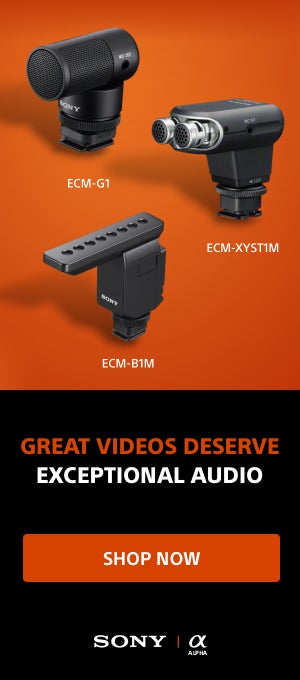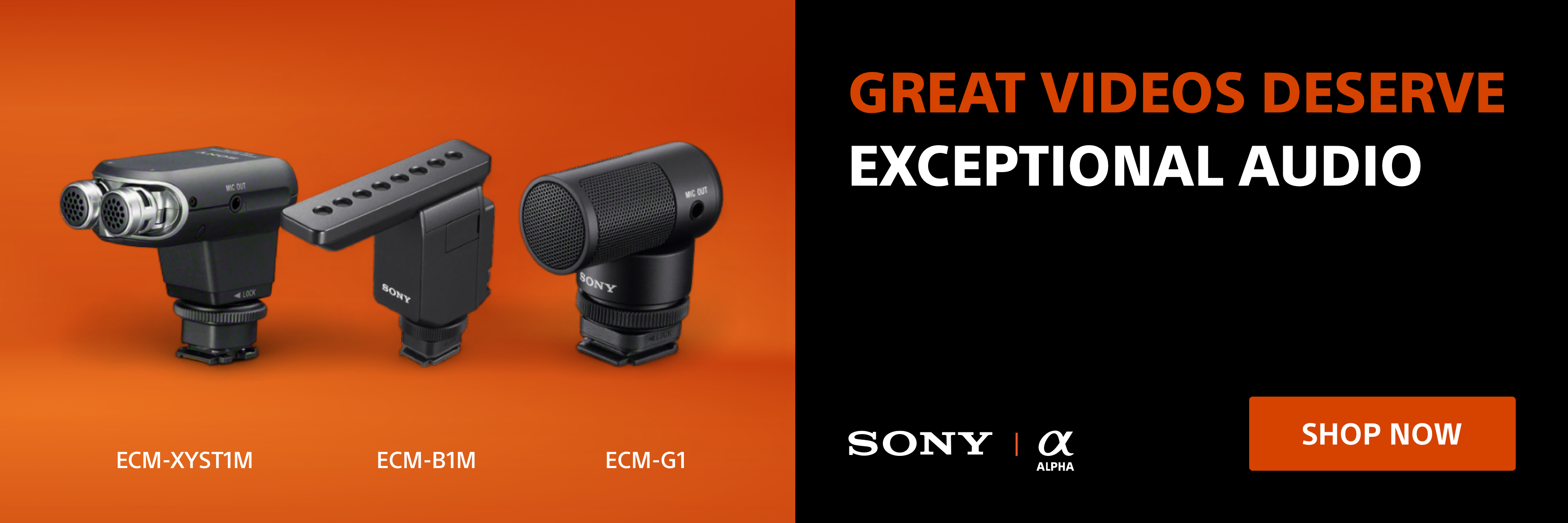Is a digital tech a luxury or a necessity? It depends on the assignment.
Short for “digital technician” and sometimes simply called a “digitech,” these specialized assistants are kind of like the IT pros of a commercial photo shoot. Hired to handle all of the digital image files created during an assignment, they may bring their own kit—a laptop, hard drives, tether cables, pertinent applications and accessories—or they may use the equipment the photographer provides. In any case their job is to manage the digital workflow—the gigabytes of data that are generated when a professional photographer shoots a quantity of high-resolution image files like the files from the 42 megapixel α7R III—so that the photographer is free to concentrate on photography.
But when exactly is a digital tech needed? Some photographers may go their whole career without ever hiring a digitech, while others may work with them on every shoot. More than just personal preference, there are some instances in which it definitely makes sense to shell out for the help. If you’re working on large-scale advertising productions, for instance, you’re probably in the pro-digitech camp.
Sony Artisan Gabe Rogel is solidly pro-digitech, though he only got there in recent years. He doesn’t hire a tech for every shoot, but he would if he could.
“I use them whenever I can,” Rogel says. “I usually have an assistant for most projects, but the digitech is kind of the next level of needed help. I would have a digitech any time the budget allowed.”
When Rogel is working on a production that will generate thousands of image files he prefers to leave the management of those files to a professional whose primary responsibility is looking after the data. Even more important is if the client wants to see proofs from the shoot as soon as possible, and what clients don’t want that?
“You have to have enough workflow to warrant the digitech being there,” he says, “and the budget has to be there, but I just find them indispensible for projects where you’re shooting 5,000-plus, or even 1,000 or 2,000 photos. If the client wants a quick turnaround, that’s usually the only way to do it. You can send them home with a hard drive at the end of the shoot with a lot of selects picked out and really culled down quite far.”
When choosing digitechs, as he does with assistants, Rogel relies on an experienced team he’s worked with in the past. It’s helpful with digital techs in particular, he says, to hire people you know. This is especially beneficial on recurring assignments where familiarity with the broader project can be a real asset.
“If it’s a shoot I might get multiple times,” Rogel says, “they know the client and know the program and it’s good to have them back. It’s really helpful. And the client is comforted too. ‘Oh, Paul’s back. He knows our program.’”
In the usual scenario, working with a digital tech should be a comfort to the client as well as the photographer. Knowing there’s a dedicated professional handling the image files should be freeing for the photographer, who now has one less thing to worry about on set. It’s a benefit the photographer, and by extension the client, must be willing to pay for. And sometimes even the best-laid plans go wrong.
That’s what happened to advertising and lifestyle photographer Jay Fram who, on an out-of-town shoot hired an experienced digitech—albeit one the photographer had never worked with before.
“Last year I hired a digital tech on a job in L.A.,” Fram says, “and he was not comfortable with the MacBook with the pressure-sensitive trackpad. I noticed he would click that thing incorrectly and he took an empty folder and wrote over a folder with files in it. He deleted 200 files we had just shot. I was convinced right when he first looked where they should have been; I was like oh those are gone. But he did find them; he had been backing up often, haphazardly, but he dug up the backup. That experience made me feel like I don’t want anyone else to blame if something like that happens.”
Now when Fram hires a digitech he’s a little more reticent to turn over control of the workflow. Instead, he asks them to help check focus and organize files, but he prefers they not rename or relocate files unnecessarily. Most important, Fram says, is hiring a tech with whom you have a good relationship and a deep level of trust.
“I don’t think I would hire someone I don’t know to be moving my files around,” Fram says. “But I’m also pretty comfortable with my computers and my capture software and so I like to do it myself. It is a lot to pay attention to, though. And having someone to check focus is nice. I also have strong opinions about how files are named, and I don’t want them to rename files during the shoot.”
Fram knows his bad experience was a rarity, and in fact he still hires digital techs whenever possible. His preferred tech is a former assistant, Doug Garfield, whom he trusts completely.
“With someone like Doug,” Fram says, “he’s a really good digital tech, I would trust him, and I do trust him, but even then I tell him how I want the stuff named and how I want it stored. He’s also very technical, so whatever systems Doug has will be superior to mine.”
In the end, Fram says the benefits of hiring a digital tech far outweigh the risks. He knows the best clients, particularly agency art buyers, expect to see certain things on proposals that indicate the photographer is comfortable with the level of production required, and a digitech is one of them.
“On bigger jobs where you’re generating more stuff,” he says, “or if you have multiple photographers shooting, it is a good idea to have someone managing the data. Advertising clients who have seen production budgets before definitely are familiar with the idea of a digital tech and I think when you’re doing a high volume of stuff it’s a good idea to have someone managing those files.”
About the author:
William Sawalich made his first darkroom print at age ten. He earned a Master's Degree from The Brooks Institute of Photography in Santa Barbara, California. Along with portraiture, still life and assignment photography, Sawalich is an avid writer. He has written hundreds of equipment reviews, how-to articles and profiles of world-class photographers. He heads up the photo department at Barlow Productions in St. Louis.



